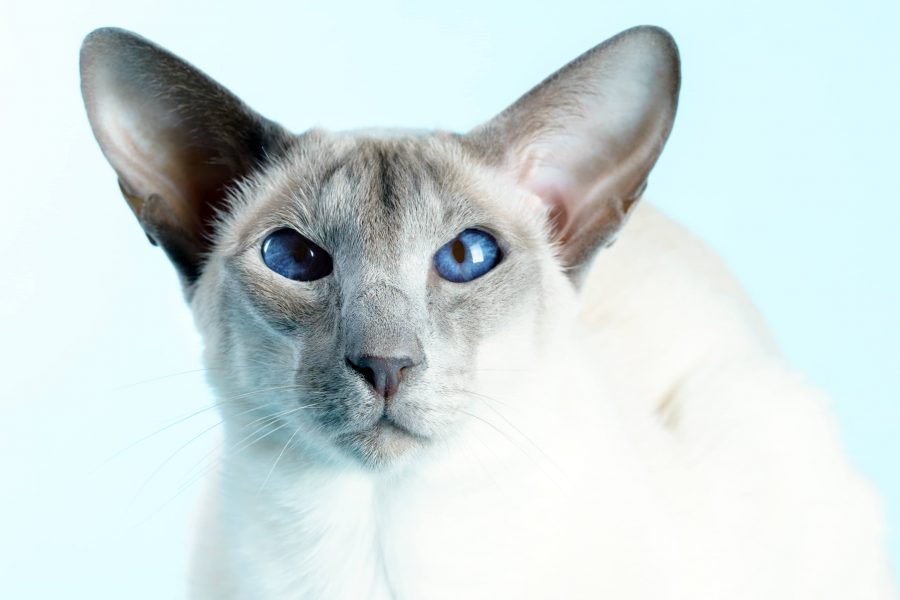Excessive meowing in cats is one of the main reasons for consultation with animal behaviorists. Whether it is soft, hoarse, high-pitched, or deep, a cat’s voice can quickly get on your nerves, especially if the meowing occurs at night or very early in the morning. Boredom, stress, senility, breed, or simple habit are among the many reasons why a cat meows loudly. Fortunately, there are simple solutions to help your feline calm down.

Why does a cat meow?
As you may have noticed, meowing is a mode of communication. But to disappoint you, it is relatively uncommon within the feline community. Have you ever seen two cats meowing when they cross paths? No. In fact, cats may meow during the breeding season or during conflicts, but it doesn’t go further than that.
Nevertheless, with humans, it’s a whole different story. Spoken language is our main mode of communication (possibly after text messages!), so it seems natural that our cat wants to do the same. However, responding to your cat when it meows (in certain circumstances) can backfire on us. Indeed, cats quickly learn that meowing =human attention. Therefore, when you respond to your cat, you reinforce its behavior.
It must be recognized that it is often pleasant to have this kind of exchange with your cat. You say “Hello,” and it meows back. But the problems begin when the animal meows at times when the human is not supposed to talk, such as at night. It is therefore important to choose the moments when you want to “talk” to your cat carefully.
What does “responding to your cat” mean?
It refers to any form of manifestation, verbal or non-verbal. Yes, from a feline point of view, turning over in bed, moving your toes, and sighing in annoyance are a form of response. According to your cat, you have reacted! Therefore, there is no reason to stop.
Causes of excessive meowing
In some cases, meowing goes beyond a simple “dialogue” with your animal and can truly complicate everyday life. It is due to:
- Boredom. This is one of the major causes of excessive meowing. When a cat has not exerted itself enough during the day, it may start meowing early in the night or early in the morning, moments when cats are supposed to go hunting. By meowing, your cat expresses its boredom and tries to attract attention. This usually applies to cats without access to the outdoors.
- Breed. Oriental cats are reputed to be particularly talkative. Among the best-known is the famous Siamese. Since this is an innate character trait, it is much more difficult to remedy the situation. It is best to be warned before opting for this type of breed.
- Senility. With age, some cats lose their sense of space and time. They therefore start meowing, preferably at night. In this case, a consultation with a veterinarian is necessary.
- Stress. A stressful situation (e.g., a thunderstorm, or the arrival of a new animal) can lead some cats to meow repeatedly.

Solutions
Excessive meowing is annoying for humans, certainly, but it still has a cause that needs to be addressed. Because, despite what some may believe, a cat doesn’t meow for no reason or simply to bother its human. The solutions that can reduce meowing are:
- Occupy your animal. This is THE solution to reduce meowing. Indeed, if your cat hasn’t slept all day and has expended energy, it will be tired and have no reason to scream at night. To do this, invest in educational bowls and fun games and renew them regularly. Set up observation areas near a window so your cat can indulge in its greatest passion: observing. Take the time to play with them every day and remember that its independence does not mean it appreciates being alone!
- Don’t react. If the meowing is nocturnal or if you simply can’t stand your cat meowing at the top of its lungs, it is imperative not to respond in any way, shape, or form (no words or movement!).
- Don’t punish your animal. This is a golden rule in cat education, you should never punish a cat. Punishment would only degrade the relationship you have with it. There is no reason for it to understand what you consider to be “wrong”. It simply reacts to a situation imposed on it. Example: lack of daily stimulation, a closed door, old age, etc. It is up to you to find the solution to meet its needs.
Keep in mind that results are not immediate. You need to be patient and determined to change your animal’s habits. Once the solution is found and your dear feline’s needs are met, it takes between 2 weeks and 1 month.
This article might interest you: What are the benefits of having a pet?
